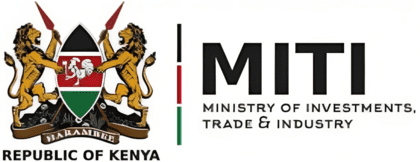Background
KENAS develops new accreditation schemes or extends scopes under existing operational accreditation schemes in response to emerging market, industry and business needs that may be initiated by, but not limited to Accreditation Scheme Managers (KENAS), Regulators, Government agencies (MDAs), Trade associations, Conformity Assessment Bodies or Professional Bodies.
This process involves the engagement of technical expertise drawn from Conformity Assessment Bodies, users of the accredited conformity assessment services, business & industry, research & academia, government & regulators who form the Technical Working Groups.
1. Forensic Testing Based on ISO/IEC 17025
Forensic testing is the scientific analysis of evidence used in criminal investigations, legal proceedings, and regulatory compliance. Forensic testing laboratories play a critical role in the justice system by ensuring that evidence is examined with precision and impartiality, contributing to public safety and the fair administration of justice.
Accreditation is essential to maintaining the integrity of forensic evidence and the justice system. By adhering to internationally recognized standards such as ISO/IEC 17025, accredited forensic laboratories demonstrate their commitment to competency, impartiality, and quality management. Accreditation ensures that forensic results are accurate, reliable, and scientifically valid. These accredited results enhance legal integrity by reducing the risk of wrongful convictions and strengthening the justice system.
Periodic assessments provide confidence that forensic testing laboratories employ qualified personnel who conduct tests using validated methods; utilize calibrated and well-maintained equipment to ensure precision; uphold transparency, ethical practices, and impartiality always.
2. Non-Destructive Testing Based on ISO/IEC 17020 & ISO/IEC 17025
Non-Destructive Testing (NDT) encompasses to a range of techniques used to evaluate the properties and structural integrity of materials, components, and systems without causing damage. NDT is vital across industries such as aerospace, construction, manufacturing, and energy, ensuring safety, compliance, and quality control.
Accreditation of NDT inspection bodies and laboratories is crucial for ensuring the reliability and accuracy of inspection reports and test results. Facilities performing NDT services adhere to internationally recognized standards such as ISO/IEC 17020 for and for inspection bodies ISO/IEC 17025 testing laboratories. Compliance with these standards assures that personnel, procedures, and equipment meet stringent quality and technical requirements.
Accreditation provides assurance that NDT laboratories and inspection bodies operate at the highest standards of accuracy and professionalism. Additionally, accredited Non-Destructive Testing services promote regulatory compliance, international recognition, continuous improvement, and contribute to public safety, economic growth, and environmental sustainability.
3. Anti-Doping Testing Based on ISO/IEC 17025 & WADA guidelines
Anti-doping testing is a scientific process used to detect prohibited substances and methods in athletes, ensuring a fair and drug-free sporting environment. These tests are conducted in compliance with the World Anti-Doping Agency (WADA) standards and national anti-doping regulations to uphold integrity in sports and protect athletes' health. Anti-doping testing plays a crucial role in promoting fair competition, protecting athlete well-being, and maintaining public confidence in sports. Accreditation ensures that anti-doping laboratories operate at the highest standards, providing accurate, impartial, and reliable test results.
With the growing concerns over performance-enhancing drugs and doping scandals, ensuring the accuracy, reliability, and credibility of Anti-Doping testing is essential. Accrediting Anti-Doping laboratories based on internationally recognized standards, such as ISO/IEC 17025 and the World Anti-Doping Agency (WADA) guidelines, strengthens trust in sports, ensures compliance with global regulations, and safeguards the future of clean competition.
Accreditation of anti-doping laboratories is essential to ensure the accuracy, reliability, and credibility of test results. This guarantees that testing methods, personnel, and equipment adhere to the highest levels of scientific rigor and impartiality. By enforcing strict quality standards, fostering public trust, and supporting international regulatory frameworks, accreditation plays a fundamental role in the fight against doping.
1. Validation & Verification scheme based on ISO/IEC 17029
ISO/IEC 17029 accreditation provides for competent and independent third-parties to evaluate the validity of claims relating to Green House Gas emissions and to ensure that claims are not empty or exaggerated, but factual. Validation and verification as conformity assessment are understood to be a confirmation of reliability of information declared in claims. Validation is applied to claims regarding an intended future use or projected outcome (confirmation of plausibility), while verification is applied to claims regarding events that have already occurred or results that have already been obtained (confirmation of truthfulness).
KENAS in the month of September 2023 completed the development and has operationalized the Validation and Verification accreditation scheme for environmental information with a focus on the aviation industry for the Carbon Offsetting and Reduction Scheme for International Aviation (CORSIA) scope initiated by the International Civil Aviation Organization (ICAO). It is an industry requirement for ICAO that Validation and verification Bodies, validating and/or verifying claims for carbon emissions in the aviation industry are accredited to ISO/IEC 17029 and ISO 14065.

